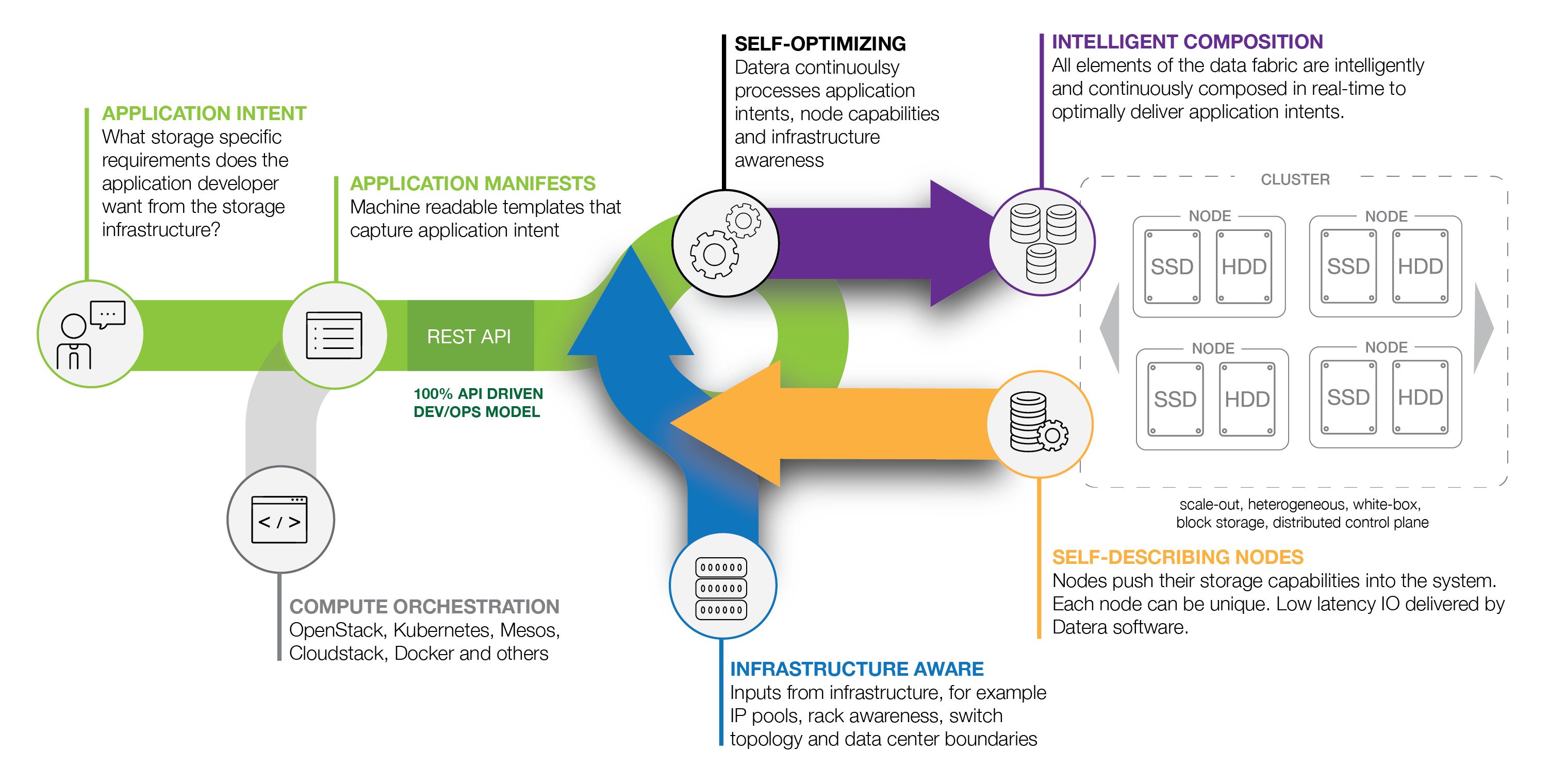Datera, the startup that brings hyperscale operations and economics to private and public clouds launched today with its first offering, Elastic Data Fabric. The startup that was in ‘stealth-mode’ claims that it is the first storage solution for enterprise and service provider clouds that is designed with DevOps style operations. DevOps is ideally the collaboration between software developers and information technology professionals while automating the software and infrastructural change process.
Coming out from its slumber, Datera also announced that it has got $40 million in funding from Khosla Ventures, Sansung Ventures, Arista Networks Co-founder Bechtolsheim and Juniper Co-founder Pradeep Sindhu. The company claims it has been doing business since its launch in 2013 and the Elastic Data Fabric is already being used in production by multiple large enterprises and service providers worldwide, but has kept a very low profile. Its latest launch is aiming at lowering infrastructural investment when it comes to internal systems that tackle storage for containers.
Datera Elastic Data Fabric makes Infrastructure as Code a reality for DevOps environments who have struggled for too long against the cumbersome operations requirements of legacy storage infrastructure. The Datera Elastic Data Fabric is scale-out storage software that turns standard, commodity hardware into a RESTful API-driven, policy-based storage fabric for large-scale clouds.
Now enterprise and service provider clouds can enjoy the operational efficiencies that have given the likes of AWS and Google their competitive edge. It brings elastic block storage efficiency, control and economics to cloud data centers. Datera Elastic Data Fabric natively integrates through iSCSI with OpenStack, CloudStack, VMware vSphere and container orchestration platforms such as Docker, Kubernetes and Mesos.

Datera Elastic Data Fabric’s features include:
- API-first operations provides web-scale automation with full infrastructure programmability.
- Policy based configuration leaves the details to Datera Elastic Data Fabric so customers can optimize price/performance for each application without hand-crafting every LUN.
- Grow-as-you-go model so customers only buy what they need when they need it. The scale-out architecture of Datera Elastic Data Fabric means customers do not need to compromise on performance or capacity.
- Flash-first design delivers high efficiency and low latency (< 1ms) across distributed, diverse storage media types. This maximizes application performance and access density.
- Multi-tenancy and quality of service for cloud-native and traditional workloads optimizes asset utilization and simplifies operations across containers, VMs and bare-metal.
- Heterogeneous component support makes it possible for IT and DevOps to seamlessly scale across many configurations and generations of industry standard x86 servers with multiple storage media types.
“In the cloud era, things scale up and down constantly. It’s always in flux. At scale, you can’t operate this kind of environment manually. It must be automated,” says Marc Fleischmann, Co-Founder and CEO, Datera. “In this world, customers want their storage fast, at scale, with a self-service delivery model. They can’t afford to wait for someone to hand-craft a LUN whenever a developer needs some storage.”
The methods that worked for administering storage in the pre-cloud era simply do not scale to the degree required to manage modern DevOps environments. To achieve the responsiveness and agility demanded of today’s IT leaders requires fundamentally changing the way storage is controlled.
